Beer Stein Celtic Clays Ireland
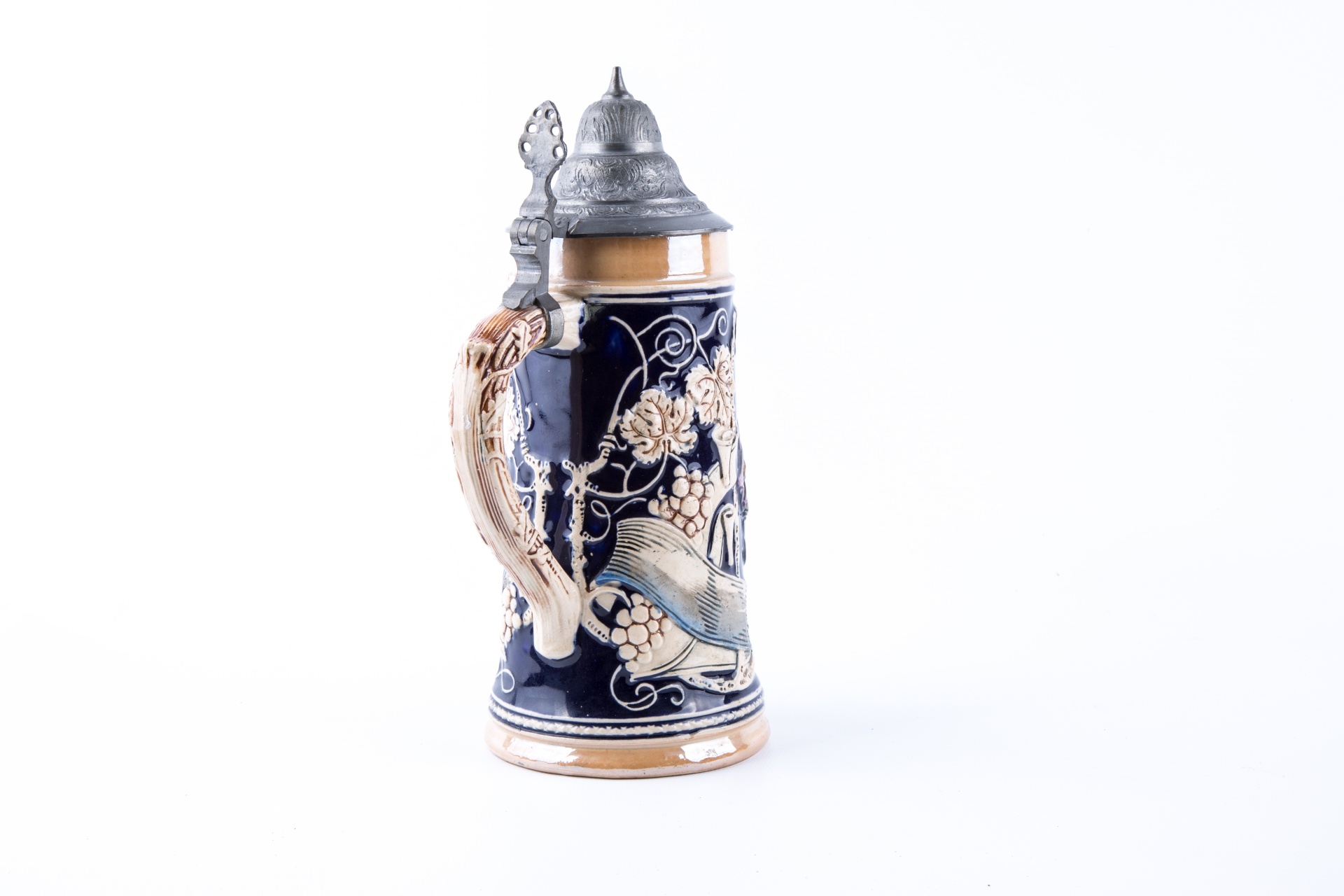
Beer Stein Free Stock Photo Public Domain Pictures
A Heavy and Valuable German Stein. An authentic German beer stein should be quite heavy in your hand. Cheaper mugs may use hollow molds to save on materials, whereas pricier and older mugs will be fairly solid and firm. Depending on the size, your mug should weigh anywhere from 2 to 5lbs or more! The mug should feel sturdy to indicate a quality.

I have a beer stein I would like some info on. I know there
Beer Steins: Past to Present. In the 14th Century, the German beer stein started out as a mug. Pewter lids attached to the top of these mugs. This was to prevent sickness and flies from entering the beverage. This precaution mainly dates back to the black plague. Beer steins come in a variety of materials.

FileFaience beer stein with ball scene on brown background 01.jpg
A typical volume of a conventional German beer stein is 1 liter, or 33.8 ounce (about 999.59 ml). However, beer mugs come in a variety of other capacities ranging from 0.25 to 2.5 liters. There is a German beer stein to fit every taste and occasion, whether you are searching for a traditional or trendy contemporary stein.
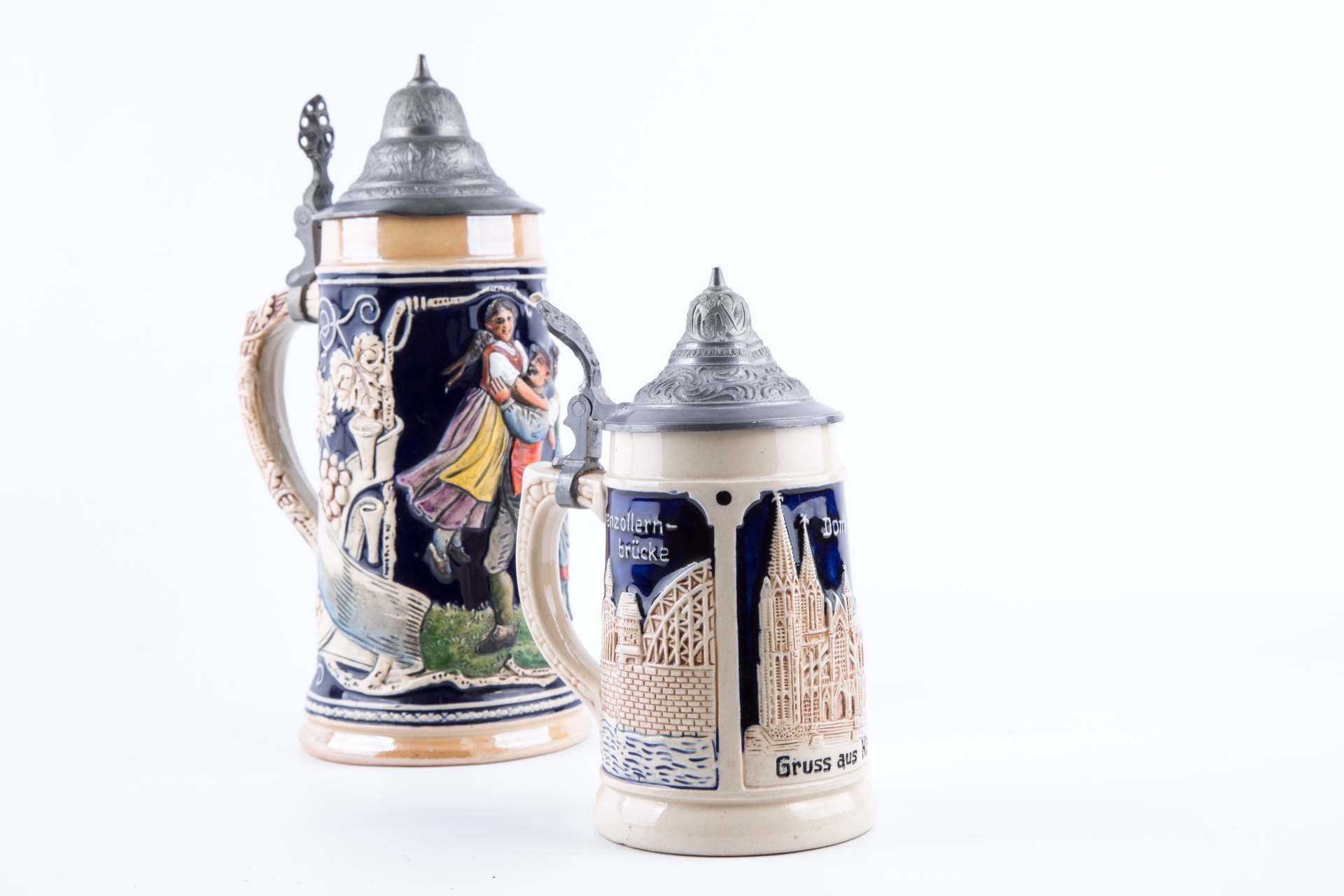
Beer Stein Free Stock Photo Public Domain Pictures
After finishing a long, hard day of work, there's nothing more relaxing than heading to a local brewery and enjoying an ice-cold beer in a solid beer stein.Gorgeous stoneware pieces that are significantly more durable (and stylish!) than your average beer glass or mug, beer steins offer every drinker a unique experience while enjoying their favorite brew.
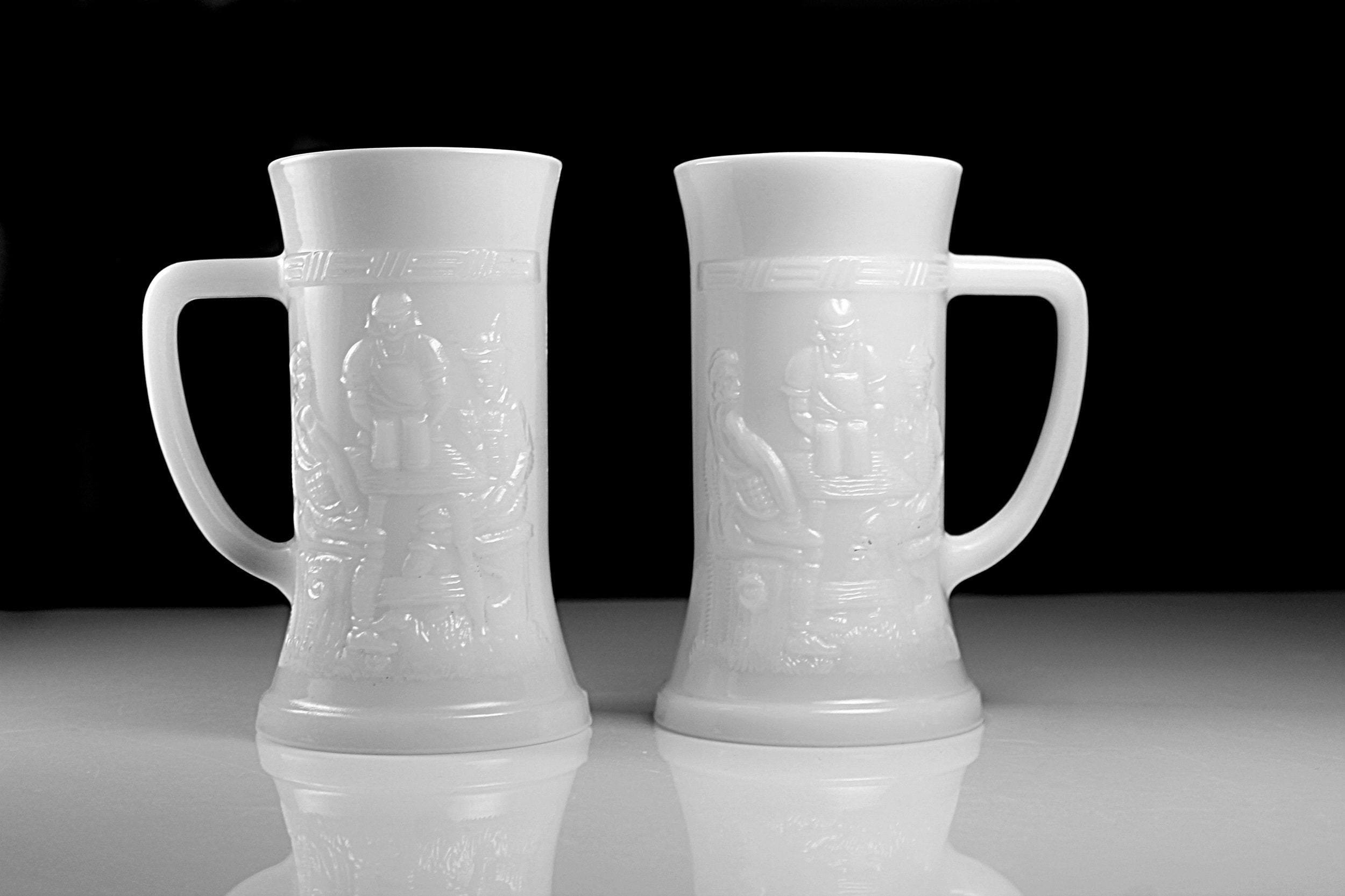
Federal Glass Beer Stein, Tavern Scene, Milk Glass, Beer Mug
The value of a beer stein depends on its authenticity, craftsmanship, and materials used. Authentic German beer steins made from high-quality materials like ceramic and featuring intricate designs are generally more valuable. Some steins can even cost up to $150,000 if they are antique and rare.
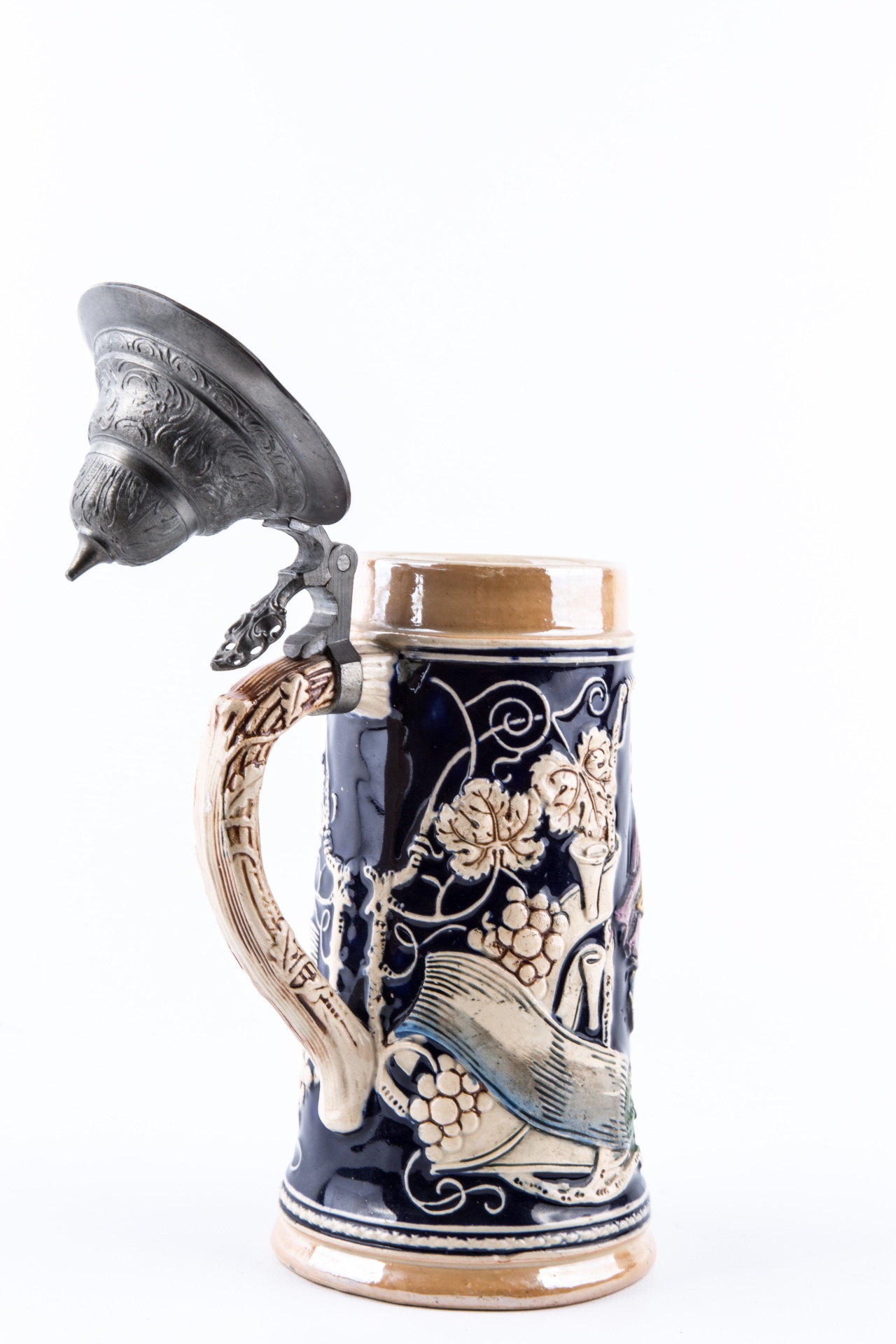
Beer Stein Free Stock Photo Public Domain Pictures
Originating in 14th-century Germany, the beer stein emerged as a response to public health concerns, with a hinged lid designed to keep beverages sanitary by preventing insects from entering the beer. This practical invention quickly became a German beer culture symbol, intricately linked to the nation's social customs and brewing traditions.
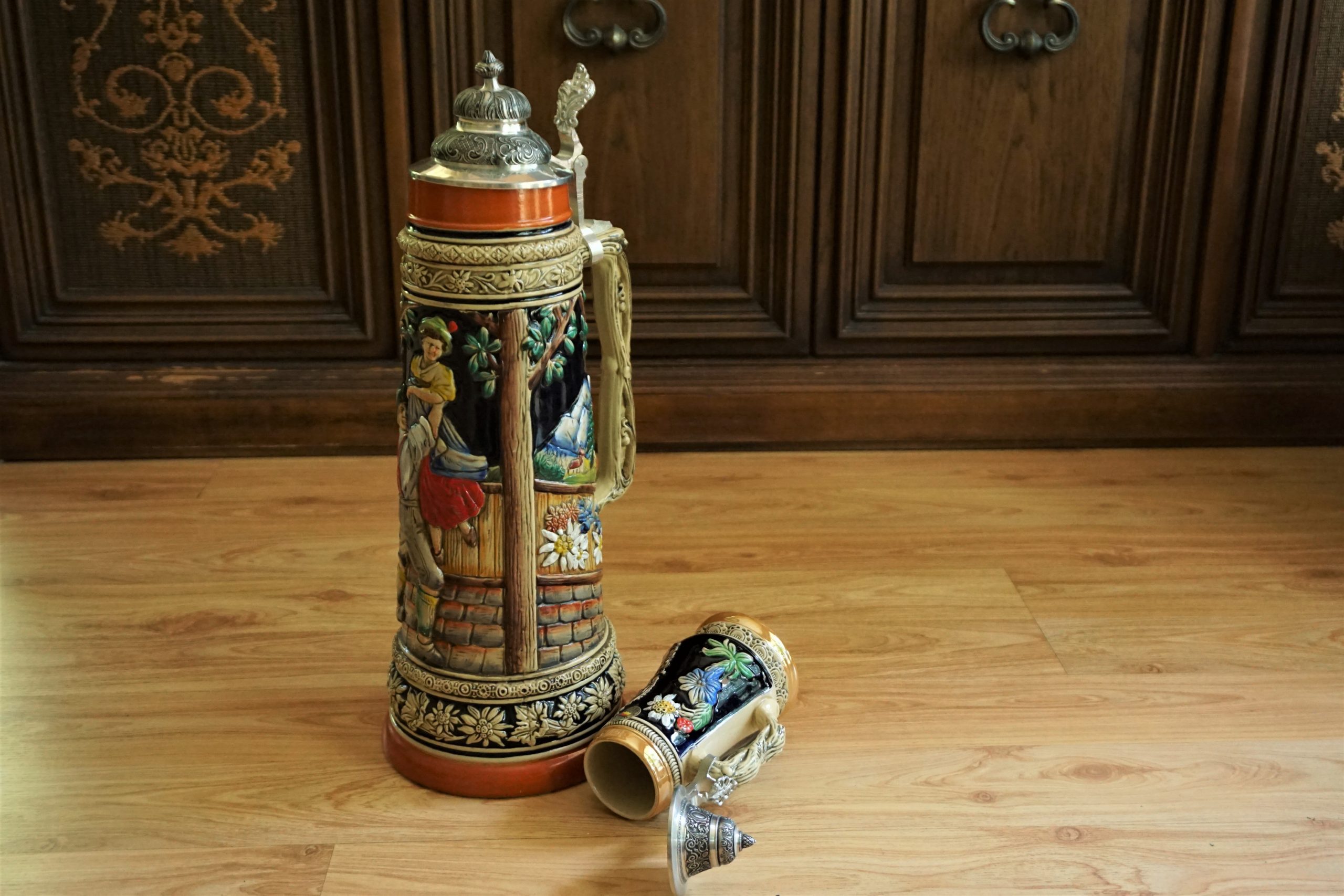
How to Tell if a Beer Stein is Valuable
As already noted, if you are asking "what is my German beer stein worth," an antique German beer stein has the potential to be valued at a higher cost than a contemporary German beer stein. A true collectible beer stein can cost anywhere from $50 to $5,000.On the flip side, if you are just looking to buy an original German beer stein to add to.
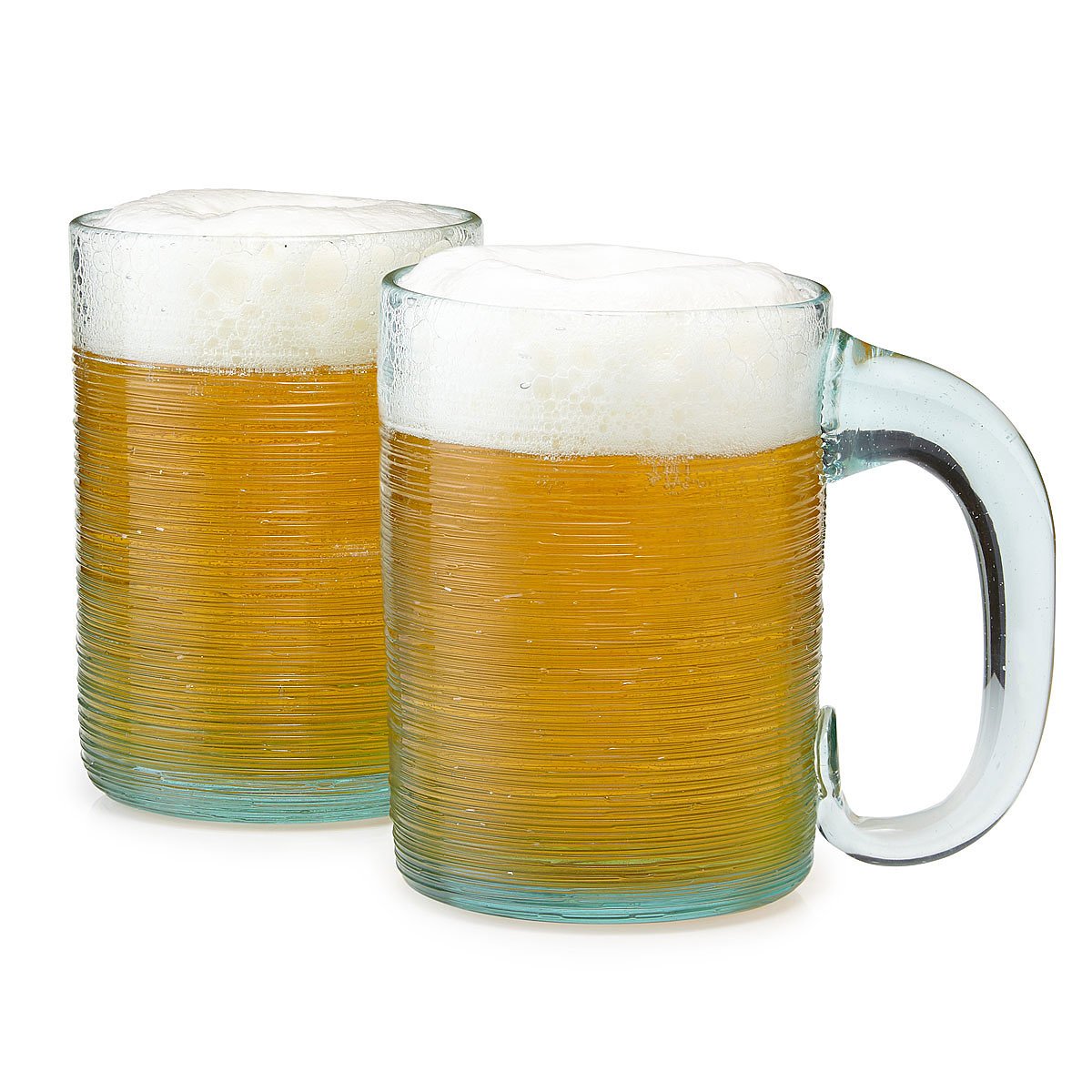
Glass Beer Stein Set of 2 beer mugs
Source: germanculture.com These beautiful beer steins get their name from the German word "Stein Krug," or stone mug, or "Steingut," which means stone goods. Funnily enough, they can be made of ceramic, porcelain, glass, wood, and pewter lids. Authentic German steins contain intricate, hand-painted pictures and range in size from 1 ounce (29.5 mL) to 8.4 gallons (32 L) in volume, with.

Pewter Beer Stein German Beer Mug, German Beer Steins, Drinking Horns
The Pilsner. The Pilsner stein is available in two styles: a wide variant with a handle and a longer, taller design without one. In either case, the slender size of the mug helps to keep the beer it holds bubbly. Moreover, since the mugs are wider at the top, they help to retain the foamy head of beer for longer, improving its flavor and scent.

German Beer Stein with Lid Beer Stein Vintage Stein with Lid Etsy
A beer stein is either a traditional beer mug made out of stoneware or, specifically, an ornamental beer mug. Although it's possible to buy beer steins in every souvenir shop in the world for low prices, such as $20, a collectible beer stein can have a value that exceeds $100,000. If you have a beer stein that you want to know the value of.

Beer Stein Celtic Clays Ireland
The value of beer steins ranges from $50 to $5000, depending on the piece's features. So, for example, if your stein has a trademark from renowned German-based manufacturers, it could cost hundreds of dollars. Some of the most popular stein-makers include: Merkelbach and Wick. Handgemalt.
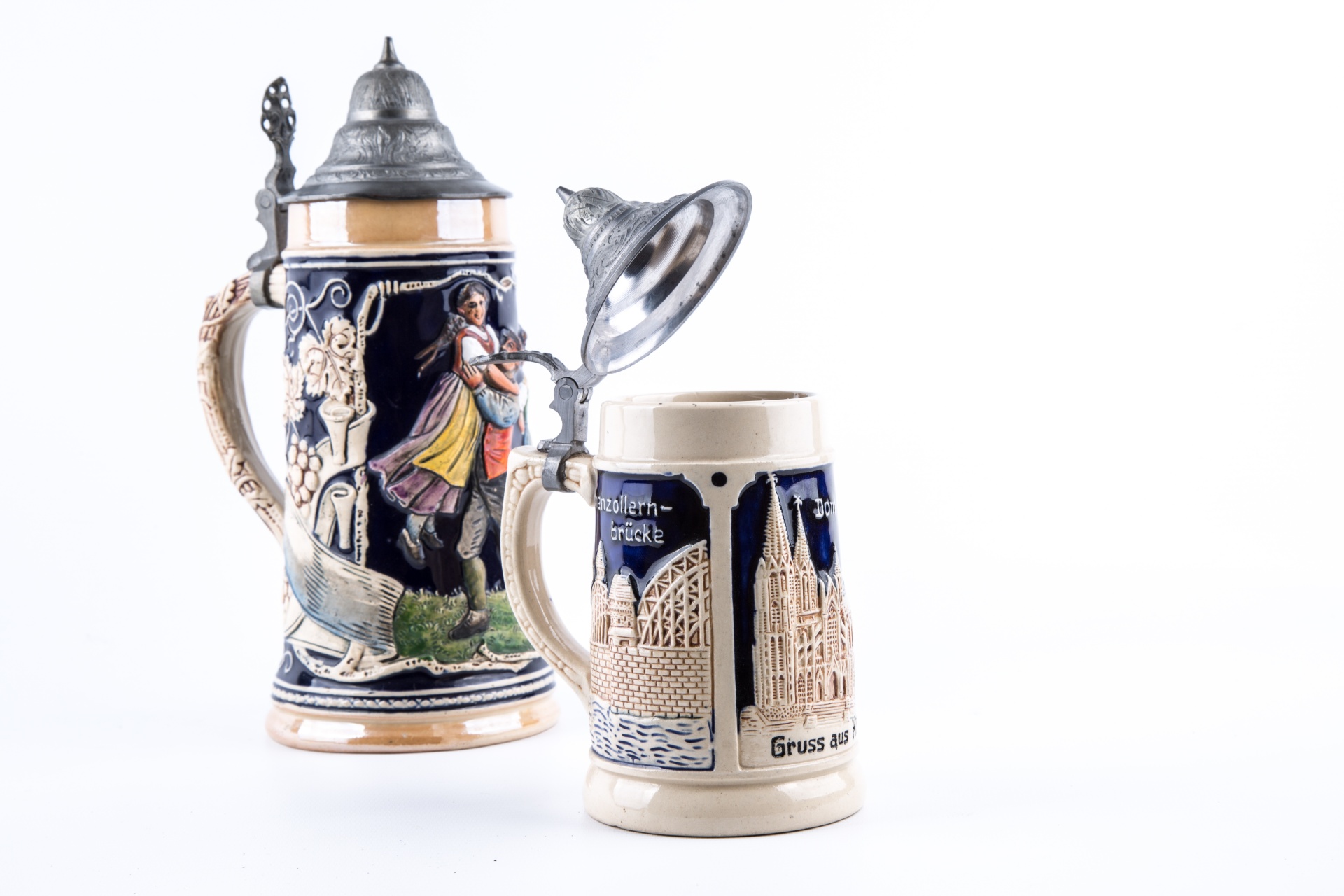
Beer Stein Free Stock Photo Public Domain Pictures
Etymology of (Beer) Stein. Stein is a shortened version of the word steinzeug krug, which means stoneware, tankard, or jug in German. A stein is just one of many different types of beer glasses. The word transformed into staene in Old English and meant pitcher or jug. The most recognized English version, stein, appeared in 1855.
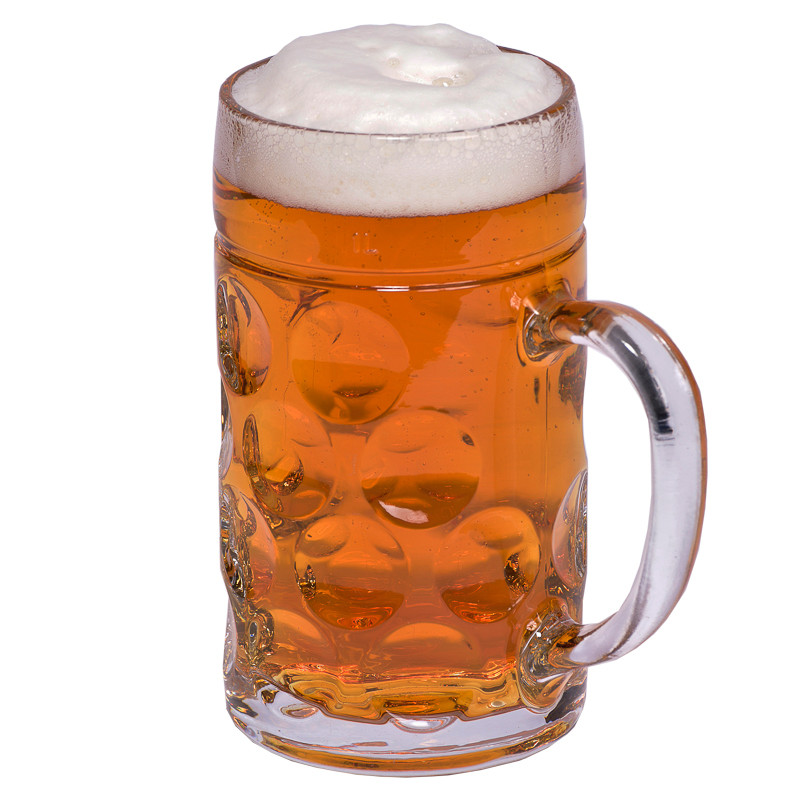
B&M Beer Stein Christmas, Gift Set, Novelty Gifts,
Collecting Beer Steins. Order Beer Steins from Germany with forward2me. Each September, the sounds of lively oompah bands, sizzling wursts, and "Prost!" cheers announce the start of Oktoberfest but there's one iconic symbol whose distinctive clinking and ornate design has become synonymous with the beer festival.
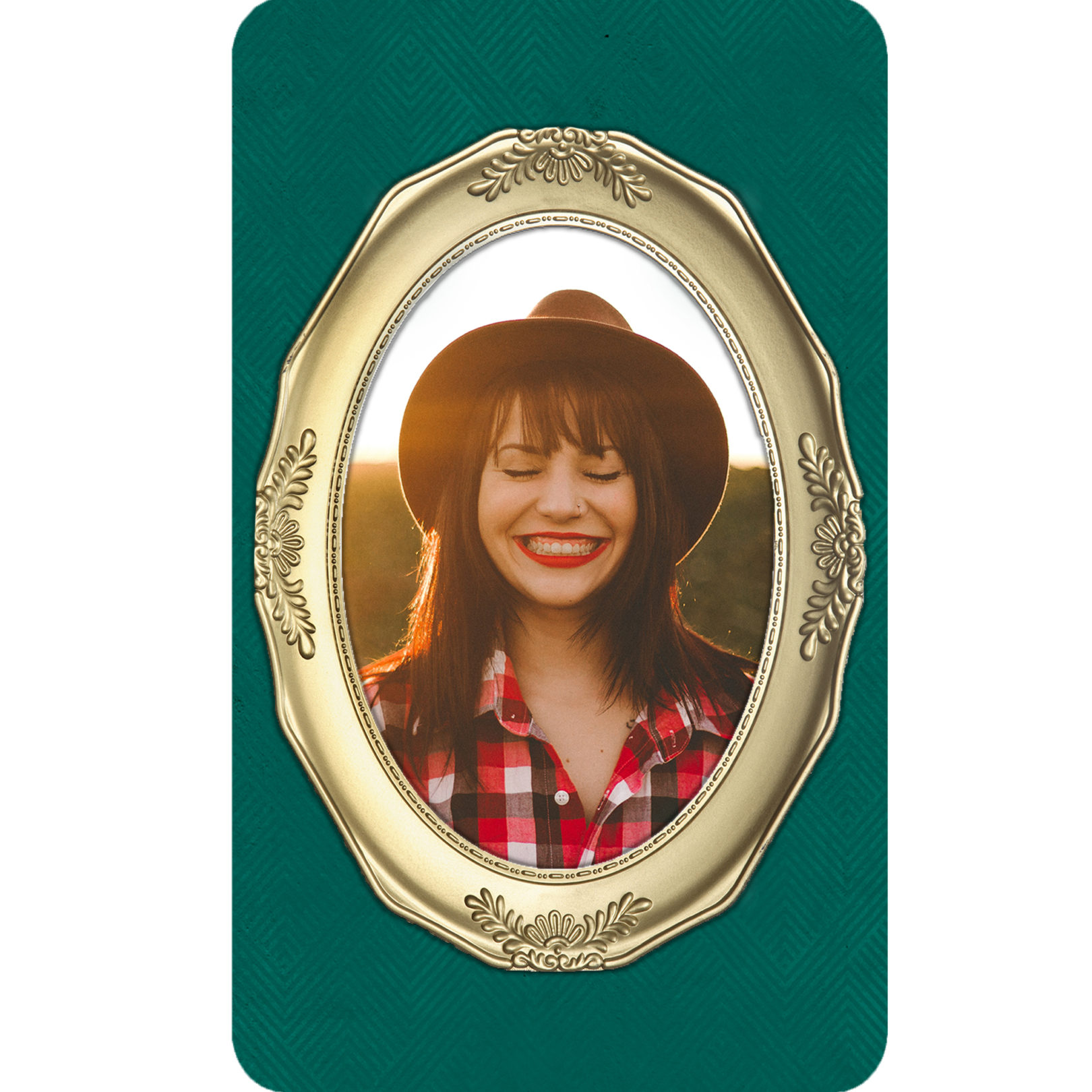
Best Practices Personalized Beer Stein teelaunch blog
The typical definition of a beer stein involves the mug having a lid, which is believed to have originated during the Black Plague during the mid-1300s to keep flies from getting into beer. Later on, during the 19th century, stein makers started to experiment with using different types of materials. Stoneware, glass, and porcelain became common.

Beer Stein with Lid This is a quart beer stein. Not a repr… Greg
At the bottom of the stein, the country of its origin shows. You might be anticipating the "Made in Germany" mark, but that does not always happen. Beer steins with "Made in West Germany" on their bottom were made during the Cold War. You can check the base or sides of the beer steins for their markings.
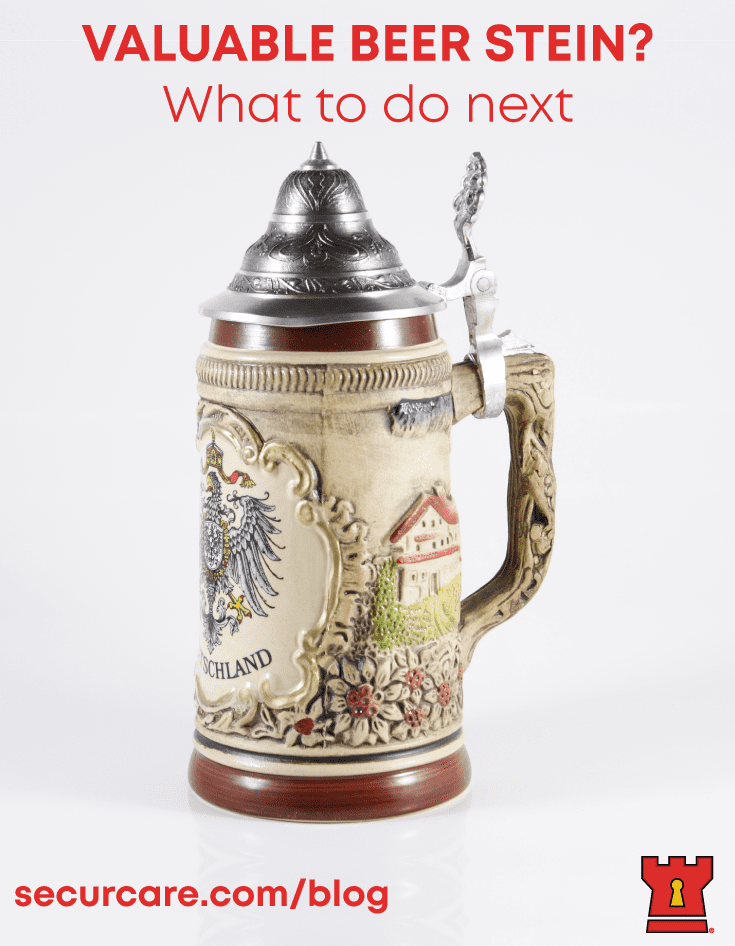
So You Think Your Beer Steins are Worth Money. What Next? SecurCare
The Beer Stein Library. The Beer Stein Library (BSL) was designed to provide basic and advanced info on all categories of German beer steins. A photo of almost any beer stein can be found from the mold number usually on the base of the stein and/or the manufacturer's identification mark. One or more photos of the stein with a description and.